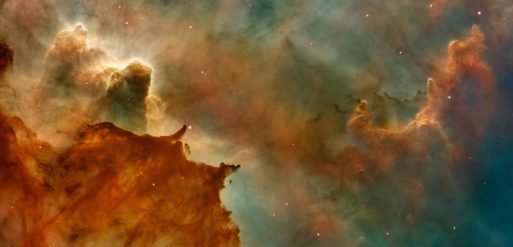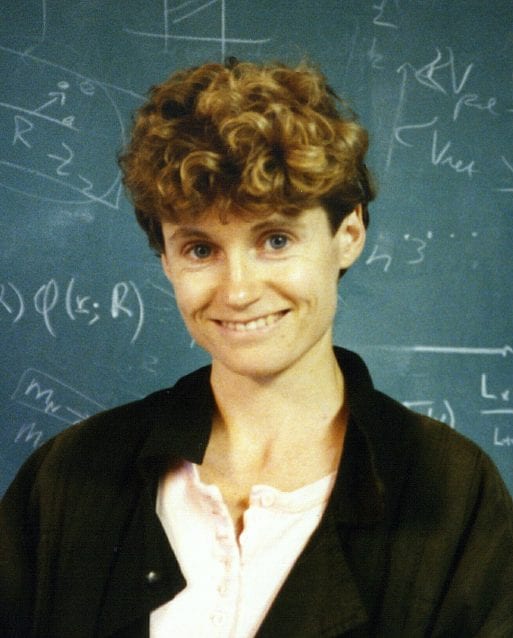 Astronomer Rebecca Elson was only 29 and in the prime of her scientific career when she was diagnosed with non-Hodgkin’s lymphoma. Elson had received degrees from both Cambridge and Princeton and was the youngest scientist to ever serve on the U.S. National Academy of Science’s decennial review committee. Her work focused on the birth, life and death of stars — the anatomy of the universe itself.
Astronomer Rebecca Elson was only 29 and in the prime of her scientific career when she was diagnosed with non-Hodgkin’s lymphoma. Elson had received degrees from both Cambridge and Princeton and was the youngest scientist to ever serve on the U.S. National Academy of Science’s decennial review committee. Her work focused on the birth, life and death of stars — the anatomy of the universe itself.
Elson had spent years observing the brutal and gorgeous rhythms of life and death from across a sea of dark matter. But after her cancer diagnosis, this distance collapsed; the mysteries she’d spent a lifetime exploring abruptly became personal.
The end of life often invites a sort of spiritual inventory, a reckoning with what has been and what may be. Fortunately, Elson had been well equipped for such intimate contemplation — not just as a scientist, but as a poet.
Having gravitated toward poetry during her time at Princeton, Elson was teaching creative writing as part of a fellowship at Harvard by the time she was diagnosed with lymphoma. The pull toward wonder and abstraction that had drawn her into the sciences drew her equally to the world of verse. Astrophysicist Janna Levin, who performed a reading of Elson’s work for the 2020 Universe in Verse celebration, aptly describes this twofold passion: “She found solace in shifting between those extremes. She found joy in the openness of poetry, and also joy in the rigor of science.”
One year before Elson succumbed to her illness at 39, she published a stunning poem titled “Antidotes to Fear of Death.”
No outer space, just space
The light of all the not yet stars
Drifting like a bright mist
And all of us, and everything
Already there
But unconstrained by form.
The poem is a vivid, hopeful exploration of death’s implications. Like all of her writing, it conveys the childlike wonder of someone who has learned enough to understand how little they know. “Antidotes to Fear of Death” is part of a posthumous anthology of Elson’s work, titled “A Responsibility to Awe,” which includes poetic musings on life, death, and love — Elson was married to Italian artist Angelo di Cintio — as well as an array of details at once more mundane and equally fascinating. Elson takes a scientist’s knack for intense observation and imbues it with an almost sensuous vibrancy, so that even her descriptions of kitchen appliances have a stark, compelling intimacy: “Switches itching / filaments recalling heat / cusped blades aching / for the soft flesh of fruit.”
“A Responsibility to Awe” also includes excerpts from Elson’s notebooks, which read something like a diary written in scattered verse. These sections reveal the more raw moments of Elson’s struggle to face mortality, as when she recounts watching a bird fling itself into her kitchen window: “its red throat thrown back in a kind of ecstasy, in a kind of posture that says ‘take me,’ to the sky, to the sun, and a small drop of blood grows round at the corner of its beak.”

Rebecca Elson in 1987
Elson left behind a legacy in both science and the arts. She published 52 scientific papers and was among the first scientists to work with data from the Hubble telescope. At the core of her writing, however, is the voice of someone who is both voracious for knowledge and comfortable with unknowing. In her work, we are offered a powerful glimpse of the astronomer’s sense of the infinite.
And sometimes it’s enough
To lie down here on earth
Beside our long ancestral bones:
To walk across the cobble fields
Of our discarded skulls,
Each like a treasure, like a chrysalis,
Thinking: whatever left these husks
Flew off on bright wings.

 “Antidotes to Fear of Death” by Rebecca Elson
“Antidotes to Fear of Death” by Rebecca Elson


 National Donate Life Month Reminds Us To Give
National Donate Life Month Reminds Us To Give
 How Dare You Die Now!
How Dare You Die Now!
 Debating Medical Aid in Dying
Debating Medical Aid in Dying














